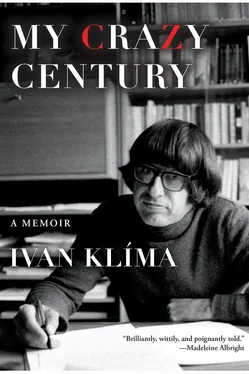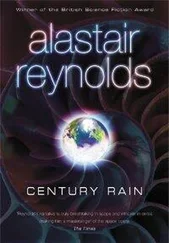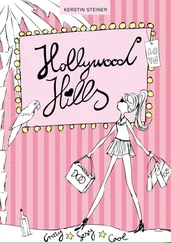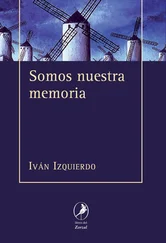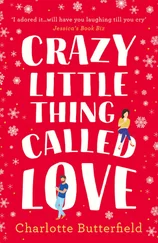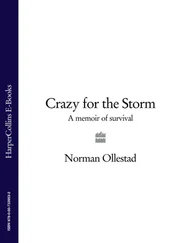When Father returned after the war, he was convinced that his comrades had saved us, as they had promised when he went away, and for the longest time, when I gave any thought to it all, I believed he was right. But now I’m not so sure. In a well-informed book about the Terezín ghetto, H. G. Adler claims that any person younger than sixty-five who remained in Terezín must have either been a member of a special group or had some personal relationship with the SS.
The special groups included the Danes, the Dutch, women who were working in the mica factory, and VIPs — members of the existing Council of Elders (earlier council members had all been murdered). None of those categories applied to us. The transport lists were drawn up by a group of people called the Jewish self-administration. The Germans in charge of the camp, however, provided them with lists of those to be included in a given transport as punishment (the final transports were assembled by the SS itself) and a list of those who, because they were useful to the Germans in some way, were not to be included. It’s possible that when the German camp leaders received notice that Father was a highly qualified specialist whose skills were obviously recognized by their superiors (and the opinion of superior officers had the authority of law for every member of the SS), they put us on the list of those who were not yet to be sent to the gas chamber.
This is merely speculation, but whatever the reason for my survival, I can take neither credit nor blame for it. In this abominable lottery, I had drawn one of the few lucky numbers, and perhaps it had been slipped to me by Father or one of his comrades, or, paradoxically, by the very people whose primary aim was to eliminate me. And thus I survived the war.
Essay: Ideological Murders, p. 419
Finally it was peacetime.
We ripped off our yellow stars and threw them into the oven. Jan and I received a box full of goodies from the International Red Cross.
I assumed that we were free, another train would come, and we’d hop aboard and leave for Prague. But an epidemic of typhoid and spotted fever broke out in Terezín, and the town was placed under quarantine. Mother was desperate. Now that the long-awaited moment had arrived and we’d made it to freedom, they wanted to let us die?
But a few days later a light-haired, freckle-faced young fellow entered our quarters from another world. He embraced Mother and shook my hand. It was my cousin Jirka Hruška, who, thanks to his mother’s decision not to declare herself a Jew, survived the war without a scratch. He had traveled to Terezín in a truck that was waiting a little outside of town to take us to Prague. Mother protested that this was against the rules, but my cousin said we’d go ahead and try anyway. Who was going to try to stop us? It was true: The SS men had disappeared; the policemen who had been guarding the fortress gates were nowhere to be seen; the higher-ups had most likely cleared out and found someplace to hide or fled altogether. And the rest probably thought it awkward to continue guarding innocent prisoners.
Mother wanted to start packing our things, but my cousin talked her out of it. We wouldn’t be needing them just now, and we would have an opportunity to come back for them. It would be best to pretend we were simply going on a stroll.
From the window of our quarters you could see clearly the gate that I’d known for years was impossible to pass through and beyond which lay another world, a world where you could walk freely, where rivers flowed and forests grew, where cities spread in all directions, circumscribed by neither ramparts nor moats.
My cousin Jirka led us toward that gate. A Soviet soldier carrying a submachine gun was at that very moment walking through the gate, but when we passed him he didn’t even glance up. And that’s how we went through — we strolled through the “gate to freedom,” as my cousin put it. He led us to the truck, which had a Czechoslovak flag flying from its bed, and on the side was written CONCENTRATION CAMP REPATRIATES! Several other escapees joined us.
Then we took off. The truck was an old clunker — the Germans had commandeered most of the decent vehicles for military purposes. Instead of gasoline it ran on wood fuel, which made the journey extremely slow, and at every little incline we had to stop and wait for the wood to produce a little more fuel. On the side of the road lay old, broken-down hulks of cars, yet every house and cottage was decorated with flags, and strangers would run out and wave to us.
And all of a sudden Prague emerged on the horizon. The truck had to negotiate the narrow gaps in the barricades, the houses were pockmarked with bullet holes, and I saw in the street a group of men and women wearing white armbands toiling away with paving stones, piling them in a heap. According to Jirka, these were Germans who only yesterday ruled over our land and decided who would live and who would die.
*
Once again I was sleeping in a real bed. In the evening, for the first time in years, I could crawl into a bathtub full of warm water. I could go outside and take off wherever I wanted down the street. I could select whatever book I wanted to read from Aunt Eliška’s library. That’s how I spent an entire blissful week. Then we received permission to move back into our old apartment.
A locksmith came with us to open the door, along with our uncle, Pops, to see what we would need. The place on Ruská Avenue was the only home I’d ever known because I never considered the barracks a home. This is where I would return in my thoughts. This is where my Jules Verne novels were, my electric train, the metal bed that I slept on and that wasn’t teeming with bedbugs. And the bathroom, the toilet, running water. Soap. Plates instead of metal bowls. A radio!
While the locksmith was opening the door, the apartment manager told us that our belongings had been removed, but we were not to worry because the SS man who had lived in our flat while we were away had left behind all of his own furniture, which, as we would soon see, was brand-new. The bastard had lived there barely six months.
The furniture was indeed new. In the living room stood an enormous writing desk, a large four-section wardrobe, and a couch. But there wasn’t a trace of my Jules Verne, electric train set, or bed. The bed in the master bedroom was even bigger than the writing desk, but the feather duvet was missing. Uncle told us not to worry; he’d find us a duvet. Then he looked at my brother and me and said to Mother that the revolution was over, and schools were operating again. Jan was still too little — he’d just turned six last November — but I had missed so many years that Uncle said I shouldn’t waste a single day.
Mother agreed and sent me to ask the apartment manager, who had a son my age, if he knew which school I was supposed to attend.
The next day I set out for the secondary school in Heroldovy Gardens. The principal was somewhat at a loss for what to do with me. “Have a seat, young man. Did you attend school in Terezín?”
I explained to him that schools had been prohibited.
The principal asked me how old I was, and when he found out that I’d be fourteen in a few months, he told me that I belonged in the ninth grade. “If we place you in a lower grade,” he mused, “it would look like you’d failed, and that wouldn’t be fair.”
So he beckoned me to follow him down long, chilly corridors to a door marked 4a. He knocked and walked right in.
The classroom was full of unfamiliar boys and girls, and the teacher was writing something on the chalkboard. The students stood up, and the teacher hurried over to greet us.
“Boys and girls,” said the principal, “please welcome your new classmate. Please be,” he hesitated for a moment as if searching for the right word, “kind to him. He was locked up in what was called a concentration camp for four years. Completely innocent people were interned there, and he didn’t have a chance to attend school.” He considered that to be the worst thing that had befallen me. He turned to the teacher, who was peering at me inquisitively, and asked that he and his colleagues take this into consideration.
Читать дальше
